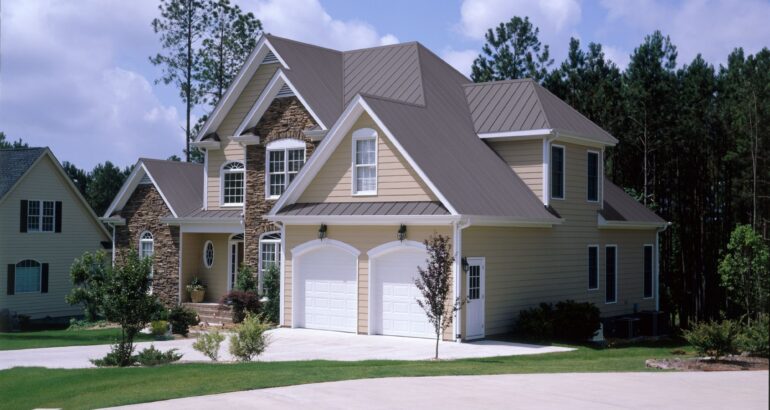
- by John Bittner
When considering a metal roof for your home, one of the most common concerns that arise is the potential noise level during rainfall. The image of rain pounding on a tin roof, creating a cacophony of sound, has been ingrained in popular culture. However, this perception is largely based on outdated information and doesn’t accurately represent modern metal roofing systems. Let’s explore the reality of metal roof noise when it rains and uncover the factors that influence sound levels.
Understanding the Science of Sound
To comprehend why metal roofs aren’t as noisy as commonly believed, it’s essential to understand how sound travels. When raindrops hit a surface, they create vibrations that translate into sound waves. The intensity of these vibrations depends on various factors, including the material’s density, texture, and installation method.
Modern Metal Roofing: A Quiet Revolution
Today’s metal roofs are far cry from the corrugated tin sheets of yesteryear. Advanced manufacturing techniques and innovative designs have transformed metal roofing into a sophisticated, quiet option for homeowners. Stone-coated metal roofing, for instance, features layers of natural stone granules that act as a sound-absorbing barrier, significantly reducing the impact noise of rainfall.
Factors Influencing Noise Levels
Several elements contribute to the sound performance of a metal roof:
Roof Assembly: A complete roof assembly, including decking, insulation, and underlayment, plays a crucial role in dampening sound. This multi-layered structure absorbs and disperses sound waves, reducing the overall noise level inside the home.
Metal Type and Thickness: Different metals have varying sound absorption properties. Steel, being denser and thicker than aluminum, tends to be quieter. Copper and zinc, known for their density, are also effective at minimizing noise.
Texture and Coatings: Textured surfaces and specialized coatings can help break up sound waves, reducing reverberation. Stone-coated metal roofs excel in this aspect, offering superior noise reduction compared to smooth metal panels.
Installation Techniques: Proper installation by certified professionals, such as the experts at Bittner Roofs, ensures that the roof is securely fastened, minimizing vibrations and associated noise.
Comparing Decibel Levels
To put things into perspective, let’s look at some comparative noise levels. According to studies, rainfall on an asphalt shingle roof measures around 46 decibels (dBA), while a metal roof installed over a complete roof assembly comes in at about 52 dBA. For context, normal conversation typically registers at 60 dBA. The difference between metal and asphalt is often imperceptible to the human ear, which generally can’t distinguish between sounds less than 8 decibels apart.
Enhancing Sound Performance
For homeowners particularly sensitive to sound, there are additional measures to further reduce noise levels:
Insulation Boards: Installing wood fiber insulation boards between the roof decking and metal panels can significantly dampen sound transmission.
Attic Insulation: A well-insulated attic space acts as an additional buffer, absorbing sound before it reaches the living areas.
Solid Decking: Ensuring the metal roof is installed over solid, high-quality decking provides a stable base that helps minimize vibrations.
The Aesthetic and Practical Benefits
While addressing noise concerns, it’s worth noting the numerous advantages of metal roofing. These systems offer exceptional durability, with lifespans of 30 to 50 years or more. They’re highly resistant to severe weather, including hurricanes, hail, and fire. Metal roofs are also energy-efficient, potentially reducing cooling costs by up to 25%.
A Matter of Perception
Interestingly, the perception of rain on a metal roof varies widely among homeowners. Many find the sound soothing, likening it to soft tapping or rustling leaves during a light rain. This gentle ambiance can add a cozy atmosphere to a home, turning a rainy day into a peaceful experience.
Conclusion: A Sound Investment
In reality, modern metal roofs are far quieter than their reputation suggests. When properly installed by certified professionals like those at Bittner Roofs, a metal roof offers a perfect balance of protection, efficiency, and acoustic comfort. As with any major home improvement, it’s crucial to consult with experienced contractors who can guide you through the options and ensure your new metal roof meets both your practical needs and personal preferences. With the right approach, a metal roof can provide decades of quiet, reliable performance, turning those rainy days into a symphony of subtle, soothing sounds.


